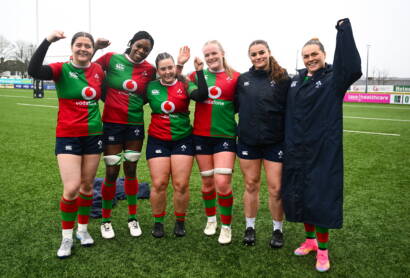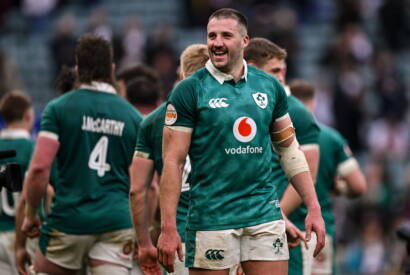Adult Nutrition

As with all elements of training, dietary needs should be tailored to suit the individual player. Each player will have different and varied tastes in the foods he likes or dislikes. For this reason, it is difficult to suggest that, as a team, all players should eat the same “menu” in terms of food content.
It is the purpose of this brief section on diet to provide guidelines which, if adhered to, will ensure that the player’s diet is balanced, nutritionally sound and healthy, and will provide sufficient energy for his training requirements.
Training Diet
The training diet is particularly important, since players will not be able to handle the rigours of training without a well balanced diet. A “balanced” diet is one that features a variety of foods from the “Five Food Groups”. These are:
1. Cereal and cereal products, eg bread (wholegrain), breakfast cereals (oatmeal, etc), rice and pasta
2. Fruit and vegetables
3. Milk and milk products, eg whole milk, skim milk, yoghurt, cheese
4. Meat and alternatives, eg meat (lean), fish, poultry, nuts, legumes (beans, etc) and eggs
5. Fats and oils, eg butter, margarine, cooking oils, cream and salad dressings.
By selecting foods from each of the five food groups and eating a sufficient supply of these the player’s energy requirements for growth, work and training will be covered. The key point is balance. Dietary requirements will vary greatly from one player to the next. This is due mainly to age, body size and composition, and other physical activities undertaken outside training. Training frequency, intensity and duration, will also affect dietary needs.
Nutrients
Carbohydrates (ie sugars and starches) are the best source of fuel for Rugby football. Carbohydrates are stored in the body (as a substance called glycogen) and are the most efficient energy source for repeated and prolonged activity carried out at a high intensity. In order to ensure that the stores of glycogen are full and replenished after exercise, the young player’s diet needs to be high in carbohydrates. As a guide, approximately 60% of the total calories consumed should come from carbohydrates. Examples of carbohydrate rich foods are: sugar, jam, fruit juices. However, note that these forms of carbohydrates are low in nutritional value and should only be consumed immediately after training and in relatively small quantities. At all other times complex carbohydrates such as fruit, vegetables, rice and cereals are recommended.
Protein in the diet is necessary for growth and repair of new and damaged cells, eg muscle tissue. Players in training at all ages may need to increase their dietary protein, however, this can be done by eating more food to meet training energy requirements. In this manner the player will naturally increase his protein intake.
Foods high in protein include: lean meat, fish, milk, cheese, soybeans. Protein should be approximately 15% of the total calories consumed.
Fats are a more concentrated fuel than carbohydrates and are more easily stored. However, fat requires more oxygen to release its energy value than does carbohydrate and is, therefore, more inefficient than carbohydrate. Fat is not the fuel used for high-intensity repetitive activities typical of Rugby. Any excess fat above an optimal level will only serve to decrease performance potential. Irish youth are typically fatter than their European and southern hemisphere counterparts. This can be attributed to two key factors, one, limited activity or exercise patterns and two, excess caloric consumption.
Ideally, fat intake should be approximately 25% of total calorie intake. As a guide, players should reduce the amount of deep fried foods, pastry, excess butter and margarine they consume, ie “visible” fat.
Vitamins and Minerals are essential for good health and physical performance. However, if the player’s diet is well balanced there should be no need for vitamin and mineral supplements.
Fluid intake should always be maintained during strenuous exercise and should be consumed before, during and after the activity. Water is necessary for proper functioning of the body. It helps maintain body temperature, which is particularly important during the summer months. Heat is produced as a byproduct of work. This heat must be dissipated to keep the body at its preferred temperature. Sweat is produced to help cool the body. Fluid lost via sweat must be continually replaced to enable this cooling process to continue.
In addition being well hydrated is essential in order to benefit form training. Frequently, Irish players approach training and games in a semi-dehydrated condition. Ensuring that all players are well hydrated for training and games will impact positively on their performance.
It is a good idea to monitor all players body weight before and after training or playing. A 1 kilogram reduction in body weight is roughly equivalent to a lose of 1.5 litres of fluid. It’s not unusual for players to lose as much as 3 to 4 kilograms during the course of a game and a loss of 1 to 2 kilograms from training is common. Use these changes in body weight as a guide to how much fluid a player should consume following training and games. This is particularly important when training and playing on consecutive days – players can quickly become chronically dehydrated when they are required to train and compete frequently and this will have a negative impact on their ability to perform and recover.
Hyperhydration
This is the strategy for loading more water into the body so as to be insured against dehydration especially during a game. It is important to become accustomed to this strategy during training.
Remember, do not try any unusual strategy for the first time on match day. All strategies should be well rehearsed and practised long before the playing season begins.
Thirst is not always a good guide of your fluid requirements, so it is advisable to drink more than normal. A good yardstick for daily fluid requirements is 35-45 ml per kilogram of body weight. For an average 70 kg young player this means drinking between 2.5 and 3.2 litres of water each day. The simplest and most practical drink is water. However, water does not provide the most rapid form of water replacement in the body. A dilute carbohydrate and electrolyte drink will deliver water faster to the body, eg specially formulated sports drinks. However, sports drinks should only be consumed during and immediately following training or a game. They should not be consumed regularly throughout the day. Excessive consumption of sports drinks can have adverse long term effects on teeth and can also contribute to excess fat storage. Don’t make the mistake of thinking that because the ambient temperature and humidity are relatively low during winter that the need to consume water before, during or after training is reduced!
Eating to Gain Weight
Many players will find that an increase in body weight will actually improve their ability to play the game, assuming that any increase in body weight is not due to fat increases
In order to increase lean body mass (ie muscle) players must firstly undertake a programme of increased weight training (preferably muscle building or hypertrophy exercise) supported by an increase in dietary intake.
WITHOUT AN APPROPRIATE PROGRAMME OF INCREASED MUSCLE WORK MUSCLE GAIN WILL NOT OCCUR
The following are some simple guidelines to eating that will help increase lean body mass:
- Choose a variety of foods from the five food groups each day. Eating the widest variety of fresh fruits and vegetables gives the most nutritional value for the amount of calories you are eating
- Eat at least 5 meals a day. Small meals are better than 2-3 large ones. This can be achieved by snacking every 2-3 hours
- Snack between meals on sandwiches, eg chicken and salad, tuna and sweet corn. Dried fruits are also good food snacks to carry around in a player’s kit bag
- Drink plenty of low fat milk – blended with eggs and a little ice cream. Some additional whey protein powder mixed will add additional protein which is important in gaining lean weight
- Weigh each weekly and as weight stabilises at the desired weight cut out the snacks
- Be realistic. A well planned diet with a muscle mass gain weight training programme should yield about 0.5 kg of muscle mass per week during the pre-season period
- Remember that late nights eat muscle tissue – all players should aim to have at least 8 hours sleep per night. Try to catch an afternoon nap as well. During sleep growth hormone rises dramatically – this literally converts the food eaten complemented by the training into muscle
- Eating to Lose Weight Just as being too light in terms of body weight can be a problem for some players, so can being too heavy. Specifically, having too much body fat. If overweight, it is likely that the amount of food eaten is greater than the amount of energy utilised or “burned”. As a result, excess fuel is stored as fat. In order to lose the extra weight, the player should eat less of the wrong foods (ie eat less of the foods high in calories and low in nutritional value) and complete more exercise.
Eating to lose weight
The following are some simple guidelines that will help you decrease fat weight
- Set a realistic target over a short period ie a 0.5 kg loss each week for 5 weeks ·
- Eat four servings of fruit, vegetables, wholemeal bread and cereal each day, this will ensure a good fibre and vitamin intake
- Eat lean meats (ie meat containing as little fat as possible) and when eating chicken remove the skin
- Omit deep fried foods, pastries, cakes, biscuits, confectionary, ice cream and cream and all fizzy drinks including sports drinks
- Drink low fat or preferably skimmed milk or use it with cereals, etc
- Omit alcohol
- Use butter, margarine and oils sparingly
- Eat all meals at regular times and avoid eating after the last evening meal
- Never eat confectionery while watching TV or when relaxing – instead eat fruit and drink water
- Don’t snack – when hungry eat fruit and drink water
- Set a goal of losing 0.5-1.0 kg per week and no more. Make sure to undertake a programme of increased exercise – daily. Walking is excellent for burning fat and should be done daily in addition to formal training. · Never go on a drastic weight reduction diet – ie. The Nutron diet, as it will reduce valuable muscle tissue
Once the player has reached his target weight loss, he can maintain his improved eating and exercise habits. If not it is likely that the weight will be put back on again.
Pre-training snack
Ensure that all players consume a regular diet on training day. The player should ensure that he has a carbohydrate based snack or meal 2-3 hours prior to training. Light meals and snacks include:
- Thick vegetable soup with bread roll
- Jacket potato with cottage cheese, tuna, baked beans, sweetcorn or chilli con carne · Sandwiches made with thick bread filled with low fat cheese, chicken, salad, honey/jam or banana
- Toast with tinned spaghetti in tomato sauce or beans
- Pitta bread with tuna and sweetcorn, salad, meat
- Scones or muffins or fruit cake
- Milk puddings
- Breakfast cereals with fruit
- Fruit yoghurts
Throughout the day the player should consume 200 mls of water at regular intervals (15-20 minute intervals) if possible.
Pre-game snack
On game day when the kick-off is early afternoon weigh the player before breakfast. If he is lower than his normal body weight ensure that he reaches his normal body weight by eating and drinking during breakfast.
At least 2-3 hours prior to the game the player will benefit from a light carbohydrate snack. This meal should consist of easy to digest carbohydrates. A typical pre-Game snack is similar to that of a pre-training meal or snack. See the list of carbohydrate based snacks above. A typical pre-game snack might include 2 slices of bread with a mixed salad (lettuce, tomato, potatoe or rice) and a biscuit with fruit juice. Always ensure that the player is comfortable with his pre-Game snack.
As a precaution in overcoming the diuretic effects of nervousness (quite a normal occurrence before a game) and for complete hydration ensure that the player sips water during the hours before the game. Players should be weighed in before the game. This can be easily established as a match day practice by completing this weight-in and out before and after every training session.
Alcohol Consumption
Alcohol has had a long time association with sport, with its consumption believed to be a vital component of team spirit and camaraderie. It has also been synonymous with the myth of being a good source of carbohydrate, a steadier of nerves and a substance which is simply sweated out of the body.
Alcohol can be an enjoyable part of social life, with consumption being kept to a sensible level. Excessive alcohol consumption can adversely affect long term health, with the side effects being liver and neurological damage. Alcohol consumption can also exhibit negative effects on both sporting performance and recovery.
Alcohol can affect balance, hand-eye coordination and reaction time. It may also decrease strength, speed, power, muscular and cardiovascular endurance, with the possibility of impairing body temperature regulation during prolonged exercise.
Alcohol acts as a diuretic, having a negative effect with respect to hydration. It also reduces the muscles ability to replenish glycogen stores. Both dehydration and inadequate fuel stores limit performance and have a negative influence on recovery.
Alcohol also lengthens the recovery and rehabilitation time of soft tissue damage and bruising. It has a vasodilatory effect, increasing bleeding and swelling to the damaged tissue. Even a single episode of heavy drinking will interfere with recovery and adaptation after exercise. Long term repeated misuse of alcohol will result in a deterioration in sporting performance.




